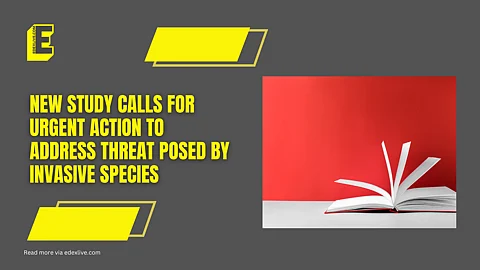

Researchers around the world have called for urgent action against the growing threat of invasive alien species, long recognised as a major threat to biodiversity. This was stated in a report by PTI.
With the number of invasive alien species (non-native to an ecosystem) set to rise, a new paper published in the journal Nature Ecology and Evolution provides the evidence base and options to inform immediate and ongoing action, according to authors, representing 101 organisations from 47 countries.
"To achieve this there is a need for collaboration, communication and cooperation, not only across borders but within countries," said lead author Helen Roy from the UK Centre for Ecology and Hydrology and co-chair of the Intergovernmental Science-Policy Platform on Biodiversity and Ecosystem Services (IPBES) Invasive Alien Species (IAS) assessment.
The paper is based on the main findings of the IPBES thematic assessment report on invasive alien species and their control, published in September 2023.
The researchers, including those from Kerala Forest Research Institute, Peechi, also found that an interplay of factors driving biodiversity loss, including climate change, is intensifying biological invasions.
"Climate change is a major driver facilitating the establishment and spread of invasive alien species into previously inhospitable regions. For example, climate warming is enabling aquatic and terrestrial invasive alien species to establish and spread poleward, including into the Arctic and Antarctic regions," the authors wrote.
They said that the indigenous peoples and local communities will be critical to achieving success in addressing biological invasions.
